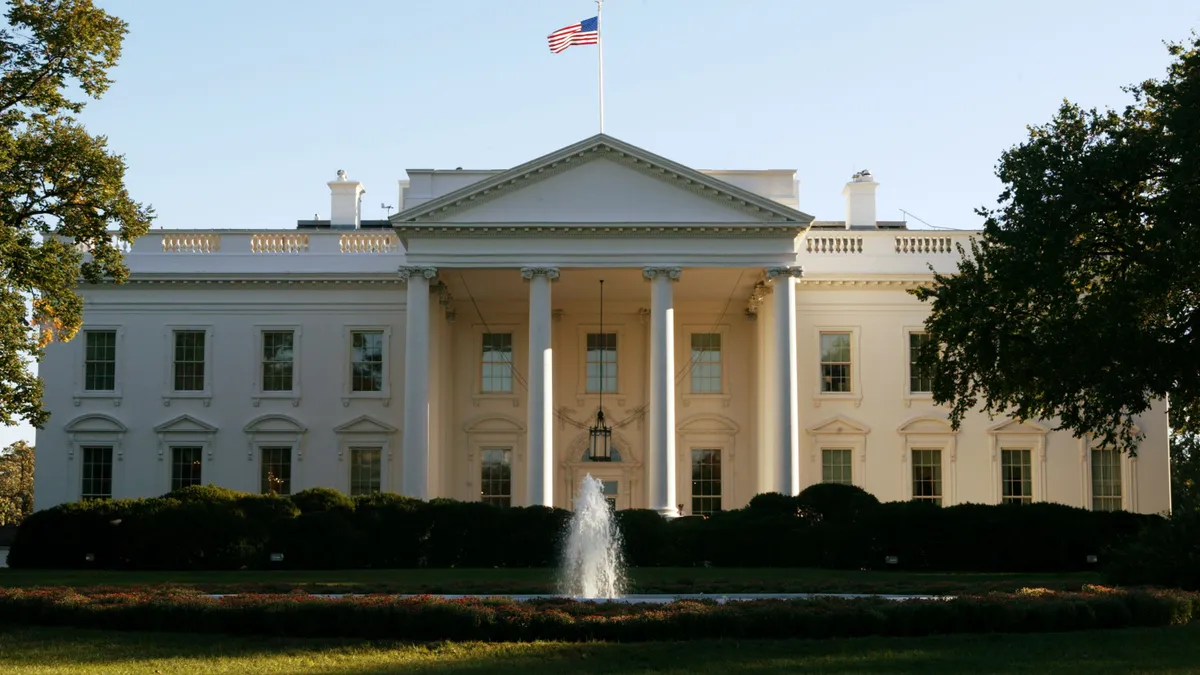UPDATE: May 9, 2022: The Biden administration expanded its sanctions against Russia to include eight executives from Sberbank and 27 from Gazprombank, the financial arm of Russia's state-owned energy corporation Gazprom, the Treasury’s Department's Office of Foreign Assets Control (OFAC) announced Sunday.
Sberbank is the largest financial institution in Russia and is majority-owned by the Russian government.
“It is uniquely important to the Russian economy, holding about a third of all bank assets in Russia,” OFAC said.
The new round of sanctions, levied against the nation for its ongoing war against Ukraine, also include limits on three Russian television stations.
OFAC also announced U.S. consulting and accounting firms are banned from aiding Russian companies.
“Today we are further constricting Russia’s economy and access to services and technology it needs to conduct this unprovoked invasion,” Treasury Secretary Janet Yellen said in a statement. “Preventing Russia from accessing the United States’ valuable professional services increases the pressure on the Kremlin and cuts off its ability to evade sanctions imposed by the United States and our partners. We are also targeting Putin’s ability to generate revenue that enables his aggression, as well as entities and their leaders who support his destructive actions.”
-------
The Treasury Department’s Office of Foreign Assets Control (OFAC) on Monday banned U.S. people and companies from participating in transactions involving Russia’s central bank, the country’s Ministry of Finance and the Russian National Wealth Fund. The moves represent a new round of sanctions stemming from Russia’s invasion of Ukraine last week.
Treasury also imposed sanctions on the Russian Direct investment Fund, a sovereign wealth fund run by Kirill Aleksandrovich Dmitriev, an ally of Russian President Vladimir Putin.
The U.S. is making an exemption to sanctions for the energy sector. It issued a "general license" authorizing certain energy-related transactions with Russia’s central bank — a carve-out meant to reduce impact in Europe and in global energy markets.
"We wanted to put these actions in place before our markets open [Monday] because what we learned over the course of the weekend from our allies and partners was the Russian Central Bank was attempting to move assets and there would be a great deal of asset flight starting on Monday morning from institutions around the world," a senior Biden administration official told CNBC on a conference call. "Our strategy, to put it simply, is to make sure that the Russian economy goes backward as long as President Putin decides to go forward with his invasion of Ukraine."
The U.S., the European Union, Britain and Canada said Saturday they would remove some Russian banks from the Society for Worldwide Interbank Financial Telecommunication (SWIFT), a global financial messaging service. The list of banks, however, was not final as of Monday morning. The EU will be taking the last pass on that because SWIFT is based in Belgium.
As a result of Monday’s moves, which took immediate effect, any Russian central bank assets that are held in U.S. financial institutions are "effectively immobilize[d]," Treasury said, and financial institutions outside the U.S. that hold dollars for the Russian central bank cannot move them.
Russia has amassed roughly $643 billion in international reserves since its 2014 annexation of Crimea — in part by diverting oil and gas revenues, The New York Times reported. About $100 billion of that was held in U.S. dollars as of June, Bloomberg reported, citing Russia’s own data from January. Taken together with a similar block of Russian central bank assets by the EU, about half of the war chest Russia could use for its Ukraine operation is out of Putin’s reach, a Treasury spokeswoman told Bloomberg.
Meanwhile, the European arm of Sberbank, Russia's biggest lender, could fail after a run on its deposits, the European Central Bank (ECB) warned Monday, according to Reuters.
In a move to mute the sanctions’ impact, Russia's central bank more than doubled its key interest rate to 20%, the highest level in almost two decades. The value of Russia’s ruble fell more than 30% over the weekend, and senior Biden administration officials predicted inflation in Russia could spike, along with a contraction of economic activity amid the lost value, according to The New York Times.
"The U.S. and other Western economies have deployed a set of highly potent financial weapons against Russia with remarkable speed," Eswar Prasad, a Cornell University economics professor and former International Monetary Fund official, told the outlet. "Cutting off access to global financial markets and to a country’s war chest of international reserves held in currencies of Western economies amounts to a crippling financial blow, especially to an economy like Russia’s that relies to such a large extent on export revenues."
Administration officials said they are considering measures to restrict Russia from acquiring technology that would ensure it is a long-term leader in energy production, Bloomberg reported.





















